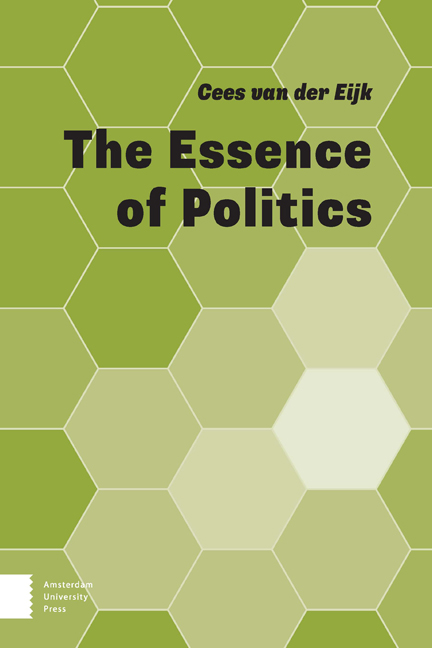Book contents
- Frontmatter
- Dedication
- Preface
- Contents
- Chapter 1 What is Politics?
- Chapter 2 Conflict and Cooperation
- Chapter 3 Key Questions
- Chapter 4 Political Actors
- Chapter 5 Political Conflicts
- Chapter 6 Political Power
- Chapter 7 The Political Landscape and the Wider Context
- Chapter 8 The Political System and the Political Community
- Bibliography
Chapter 4 - Political Actors
- Frontmatter
- Dedication
- Preface
- Contents
- Chapter 1 What is Politics?
- Chapter 2 Conflict and Cooperation
- Chapter 3 Key Questions
- Chapter 4 Political Actors
- Chapter 5 Political Conflicts
- Chapter 6 Political Power
- Chapter 7 The Political Landscape and the Wider Context
- Chapter 8 The Political System and the Political Community
- Bibliography
Summary
This chapter addresses one of the essential questions introduced in Chapter 3: who are the actors in political conflict and cooperation? This requires a focus on different kinds of actors, on the differences between the goals and interests that they pursue, and on their resources. It also requires a reflection on how the behaviour of political actors is to be interpreted: whether as choices, or as determined by the circumstances in which actors find themselves.
Varieties of actors
As already discussed in Chapter 3, the question ‘who are the actors?’ does not require a list of names. Instead it requires a description of actors in terms of characteristics. Among the most fundamental characteristics are two distinctions that classify actors into different ‘kinds’. These are the distinction between individual, collective and institutional actors, and the distinction between elites and non-elites. The importance of these two distinctions is that the different kinds of actors that are distinguished in this way generally also differ in other characteristics, such as their goals, their position in a power structure, the resources that they have at their disposal, and so on. In addition to a description of the (kinds of) actors involved in political conflict, we also need to know how they are related to each other. Who are on the same side in a conflict, and who are not? Who is dependent on others, who is more powerful, and so on. These questions about relationships between actors will be discussed in the context of the characterisation of conflicts, later in this chapter.
Individual, collective and institutional actors
Although the term actor can easily be interpreted as relating to individuals of flesh and blood, not all actors are individual persons. Of course, many political actors are individual people who pursue goals that they care about. The smaller the scale of the political system we look at (the society or group for which something must be settled about which there are conflictual views), the more that we see that individuals are the relevant actors. Conflicts in a local organisation about membership fees (and how to use them), for example, are a case in point.
- Type
- Chapter
- Information
- The Essence of Politics , pp. 55 - 70Publisher: Amsterdam University PressPrint publication year: 2018

